1. Chuck Berry – The Architect of Rock ‘n’ Roll
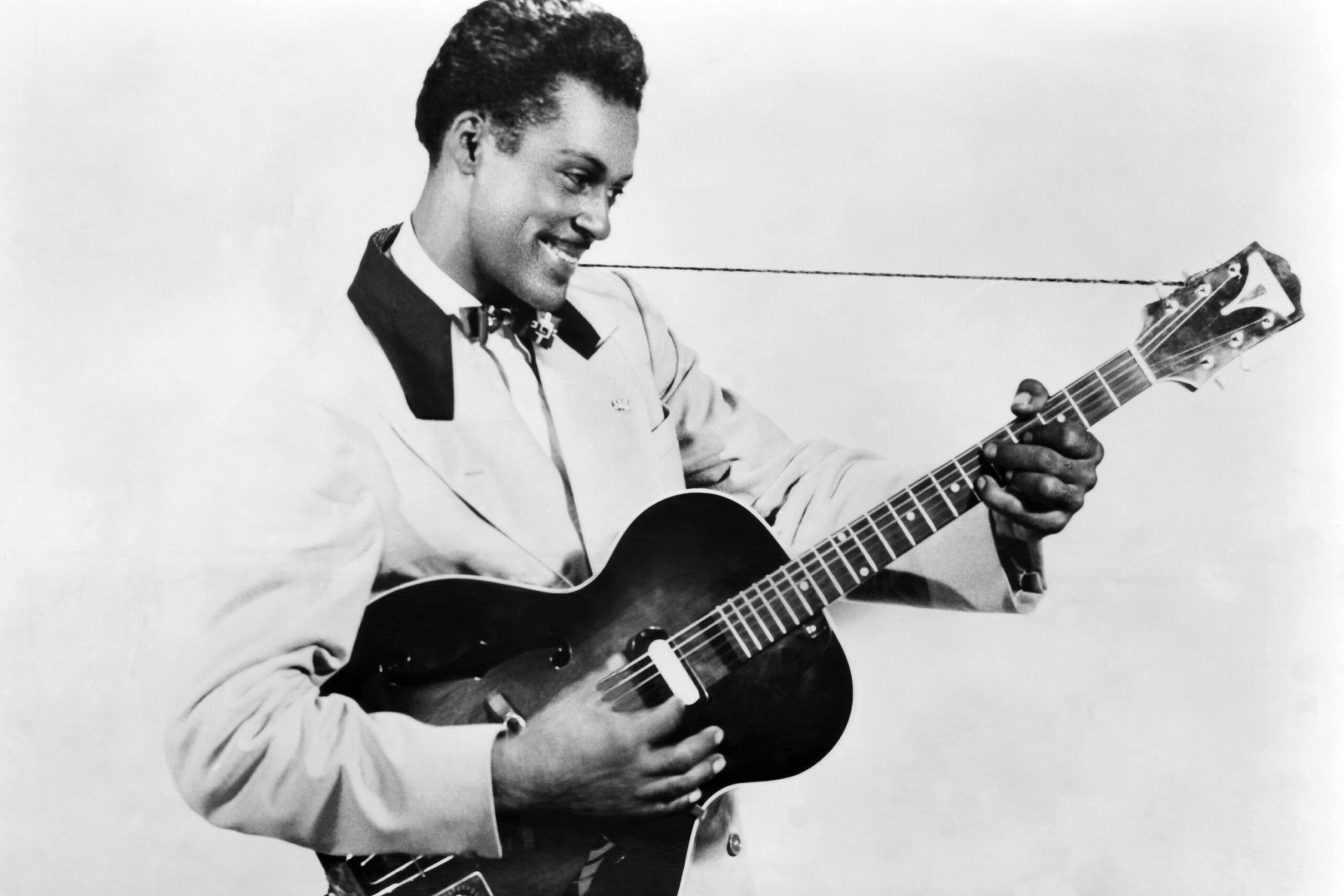
Before rock ‘n’ roll became a cultural force, Chuck Berry was busy laying its foundation. With his fiery guitar licks, energetic stage presence, and sharp storytelling, he took rhythm and blues and transformed it into something brand new. “Maybellene” was a revelation in 1955, fusing a driving beat with country-influenced guitar work and an electrifying spirit that made teenagers go wild. His songs weren’t just catchy—they painted vivid pictures of fast cars, high school dances, and youthful rebellion. The way he played guitar, bending notes and duckwalking across the stage, became the blueprint for countless rock legends. Without Berry, there’s no Beatles, no Rolling Stones, no Beach Boys. Even Bob Dylan, who later defined folk-rock, was deeply influenced by Berry’s lyricism says the University of Rochester.
Beyond the music, Berry was a force of personality. He insisted on performing with local backing bands instead of touring with his own, which was almost unheard of at the time. His influence stretched far beyond his own records, shaping an entire genre before the term “rock ‘n’ roll” was even widely used. His music wasn’t just entertaining—it was revolutionary, breaking racial barriers in a segregated music industry. He was among the first Black artists to find massive crossover success with white audiences, though he still faced discrimination at every turn. Legal troubles and the industry’s refusal to give him full credit for his impact meant he didn’t always get his due adds the Conversation. But the truth is, every rock guitarist who’s ever picked up an electric guitar owes something to Chuck Berry. He didn’t just play music—he changed the game entirely.
2. Sister Rosetta Tharpe – The Godmother of Rock ‘n’ Roll

Long before Elvis Presley shook his hips or Little Richard pounded the piano, Sister Rosetta Tharpe was blending gospel, blues, and electric guitar into something that sounded an awful lot like rock ‘n’ roll. She was a church singer with the soul of a rock star, making gospel music sound raw, raucous, and rebellious. Born in 1915, she started performing at church revivals as a child, mastering the guitar in a way few had ever seen before. By the 1940s, she was selling out venues, playing an electric guitar with a ferocity that made future rock legends take notes. Her song “Strange Things Happening Every Day” is considered by many to be the first rock ‘n’ roll record explains Woman’s World.
Yet, despite her influence, she was often overlooked in mainstream rock history. She was a Black woman in an industry that barely acknowledged her, and though her gospel roots remained strong, she struggled with being accepted in both religious and secular circles. Still, she didn’t change for anyone—she played loud, fast, and with absolute conviction. Her live performances were magnetic, inspiring everyone from Chuck Berry to Johnny Cash. Elvis himself studied her stage presence and borrowed more than a few of her moves. Today, more and more people are recognizing her as the true godmother of rock. Without her, rock ‘n’ roll might not have ever taken shape the way it did.
3. Robert Johnson – The Phantom of the Blues
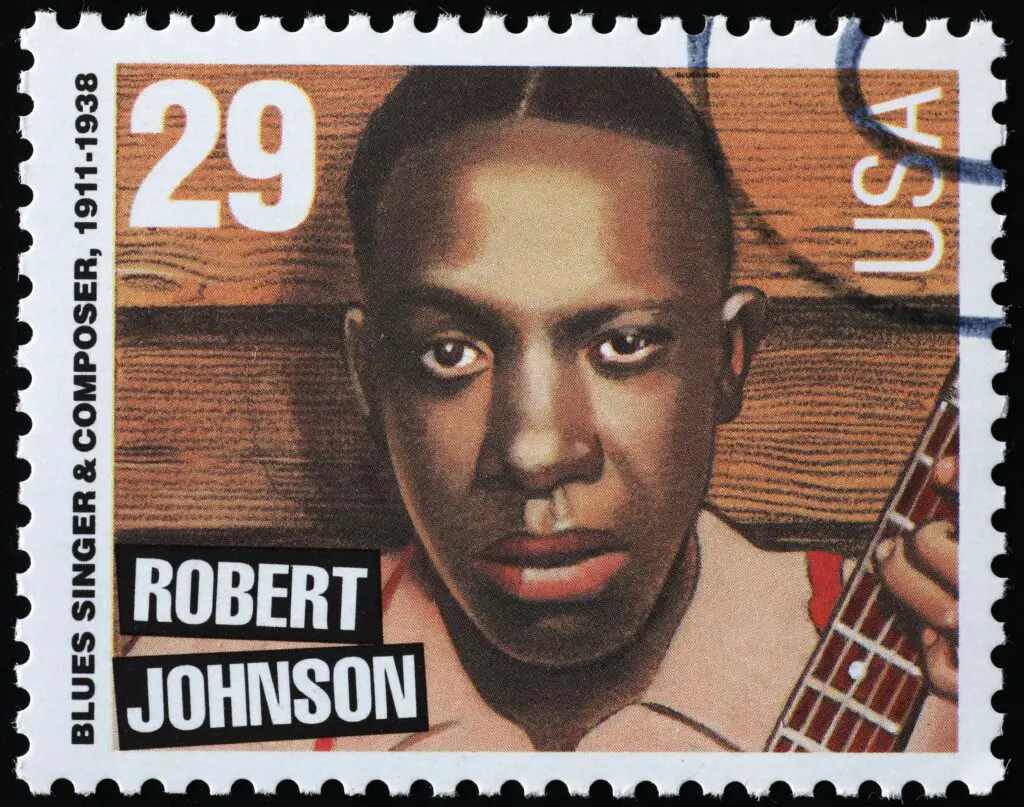
The legend of Robert Johnson is almost as famous as his music. He’s the man who, according to folklore, sold his soul to the devil at the crossroads in exchange for supernatural guitar skills. While that’s a great story, the truth is he was just an incredibly gifted musician who reshaped the blues forever. Born in Mississippi in 1911, he lived a short but wildly influential life, recording only 29 songs before his mysterious death at age 27. His haunting voice, intricate fingerpicking, and poetic lyrics set him apart from every other blues artist of his time. Songs like “Cross Road Blues” and “Hellhound on My Trail” weren’t just music—they felt like confessions from a man running from something we couldn’t see explains WAPT.
Despite his influence, he was barely recognized during his lifetime. He played small juke joints and street corners, making just enough to survive. But years later, when rock legends like Eric Clapton, Keith Richards, and Bob Dylan discovered his recordings, his influence exploded. His technique was studied, his songs were covered, and suddenly, he was the “King of the Delta Blues.” His mysterious death, possibly from poisoning, only added to his myth. If rock ‘n’ roll has a ghost, it’s Robert Johnson, forever haunting the genre he helped create.
4. Louis Armstrong – The Father of Jazz
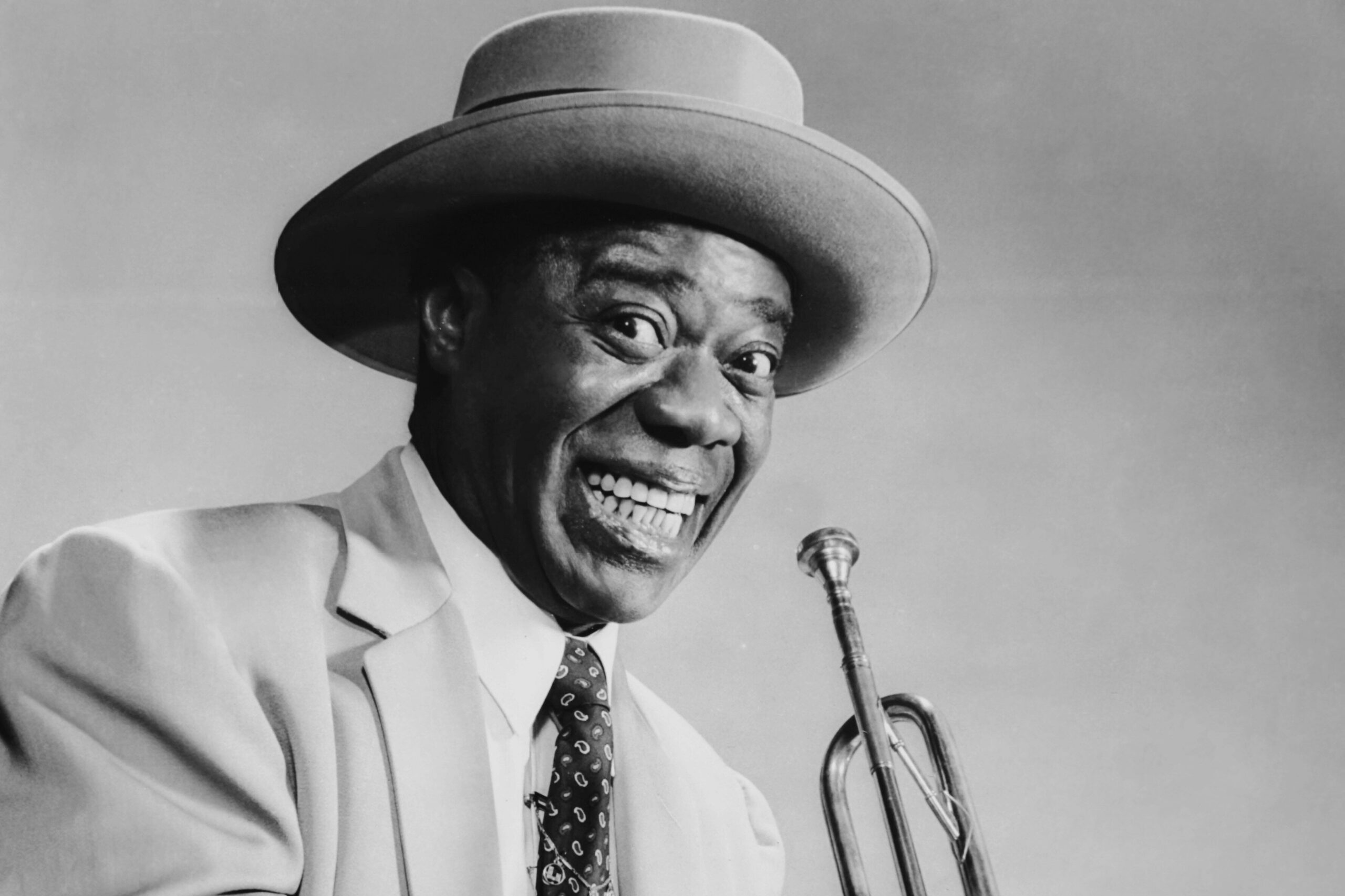
If jazz had a heartbeat, it would sound a lot like Louis Armstrong’s trumpet. Born in New Orleans in 1901, Armstrong took the loose, free-flowing sounds of early jazz and turned them into a powerful, structured art form. His gravelly voice, masterful trumpet solos, and larger-than-life personality made him one of the first Black musicians to achieve mainstream success. Songs like “What a Wonderful World” and “West End Blues” showcased his technical brilliance, but more than that, they carried a warmth and joy that felt deeply personal. His improvisational skills were unmatched, and he made each note sound like a conversation with the listener.
Armstrong wasn’t just a musician—he was a cultural icon. He toured the world, spreading jazz like wildfire and proving that music had no borders. Even in the face of racism, he remained resilient, using his charm and talent to break down barriers. He was one of the first Black entertainers to be widely accepted by white audiences, though it came at a cost—some accused him of playing it safe politically. But Armstrong’s impact on jazz is undeniable. Every jazz musician who came after him, from Miles Davis to John Coltrane, owes him a debt. He didn’t just play jazz—he defined it says BBC.
5. James Brown – The Godfather of Soul
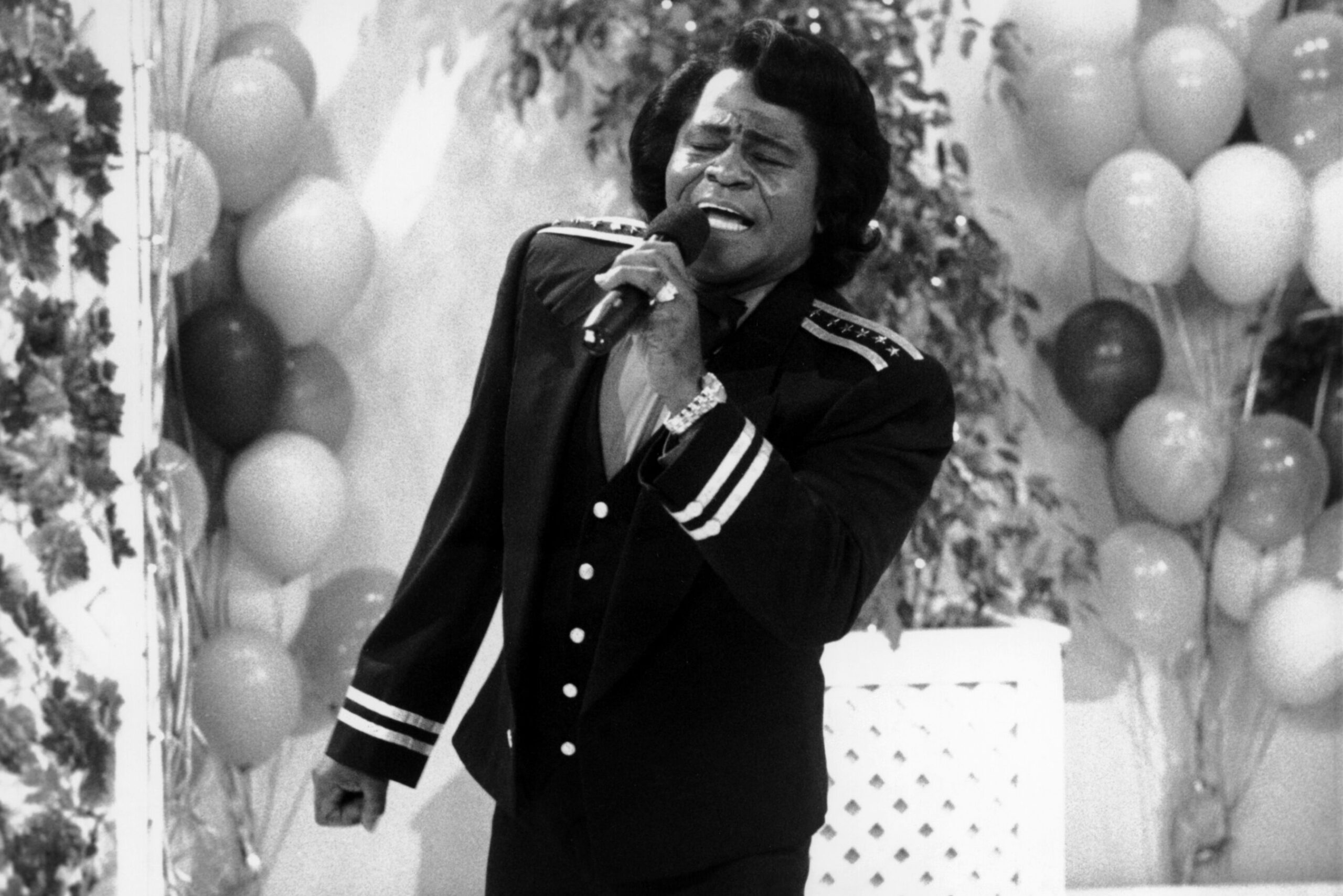
James Brown didn’t just make music—he made movements. With his electrifying stage presence, screaming vocals, and impeccable dance moves, he set the stage for funk, soul, and even hip-hop. He took rhythm and blues and cranked up the groove, making the beat the star of the show. Songs like “Papa’s Got a Brand New Bag” and “I Got You (I Feel Good)” had an energy that was impossible to resist. His performances were legendary, dripping with sweat and passion as he slid across the stage, captivating audiences with every move.
But Brown wasn’t just about the music—he was about empowerment. His song “Say It Loud – I’m Black and I’m Proud” became an anthem of the civil rights movement, giving voice to a generation demanding respect. He understood the power of music beyond entertainment, using it as a tool for change. He was a perfectionist, demanding the best from his band and himself, shaping funk music into a powerhouse genre. Without James Brown, there’s no Prince, no Michael Jackson, no hip-hop as we know it. His influence is everywhere, from the beats of rap to the swagger of pop stars. If soul music has a king, James Brown wears the crown.
6. Little Richard – The Innovator of Rock ‘n’ Roll

Little Richard didn’t just play rock ‘n’ roll—he exploded onto the scene like a firework, leaving the genre forever changed. With his wild piano playing, flamboyant fashion, and primal screams, he turned music into a spectacle. His songs, like “Tutti Frutti” and “Long Tall Sally,” were high-energy, full of pounding rhythms and uncontainable joy. He sang like he was setting the world on fire, and honestly, he kind of was. His style was unpredictable, raw, and unlike anything that had come before. In an era when rock was still forming its identity, Little Richard gave it attitude, showmanship, and a whole lot of fun.
But his influence ran deeper than just the music. He challenged racial and gender norms at a time when doing so was dangerous. He wore flashy clothes, piled on makeup, and didn’t care what anyone thought. He was unapologetically himself, paving the way for future boundary-pushers like Prince and David Bowie. His impact on rock ‘n’ roll is immeasurable—The Beatles, Jimi Hendrix, and countless others studied his every move. Though he often felt overlooked by the industry, he never stopped reminding people who really started it all. Without Little Richard, rock ‘n’ roll would have been a lot less wild, and a lot less fun.
7. Muddy Waters – The Father of Chicago Blues
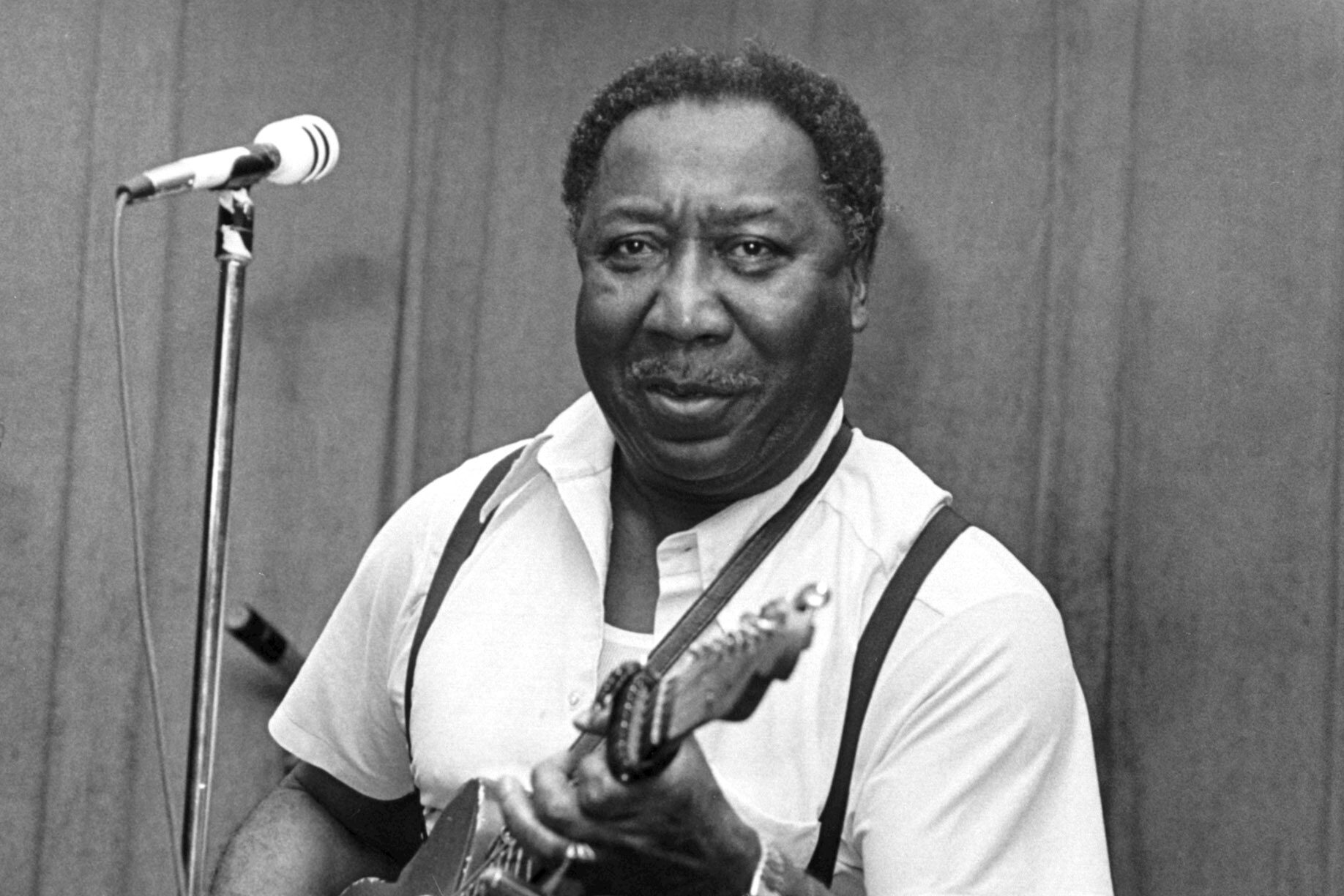
Muddy Waters took the Delta blues, plugged it into an amplifier, and created something that roared with power. Born in Mississippi, he learned the blues in its rawest form—on porches, in fields, and in small juke joints. But when he moved to Chicago in the ‘40s, he brought the sound with him and turned up the volume. With his deep, commanding voice and electric guitar, he created Chicago blues, a sound that influenced everything from rock ‘n’ roll to heavy metal. Songs like “Hoochie Coochie Man” and “Mannish Boy” were swaggering, hypnotic, and bursting with confidence.
Muddy wasn’t just a musician—he was a movement. His influence was so strong that when The Rolling Stones formed, they named themselves after one of his songs. Led Zeppelin, Eric Clapton, and countless others borrowed heavily from his sound. He played like a man possessed, making every note feel like it carried a lifetime of experience. His music spoke of struggle, resilience, and the thrill of survival, themes that resonated deeply with both Black and white audiences. If the blues is the foundation of modern rock, then Muddy Waters is the man who poured the concrete.
8. Bo Diddley – The Rhythm King
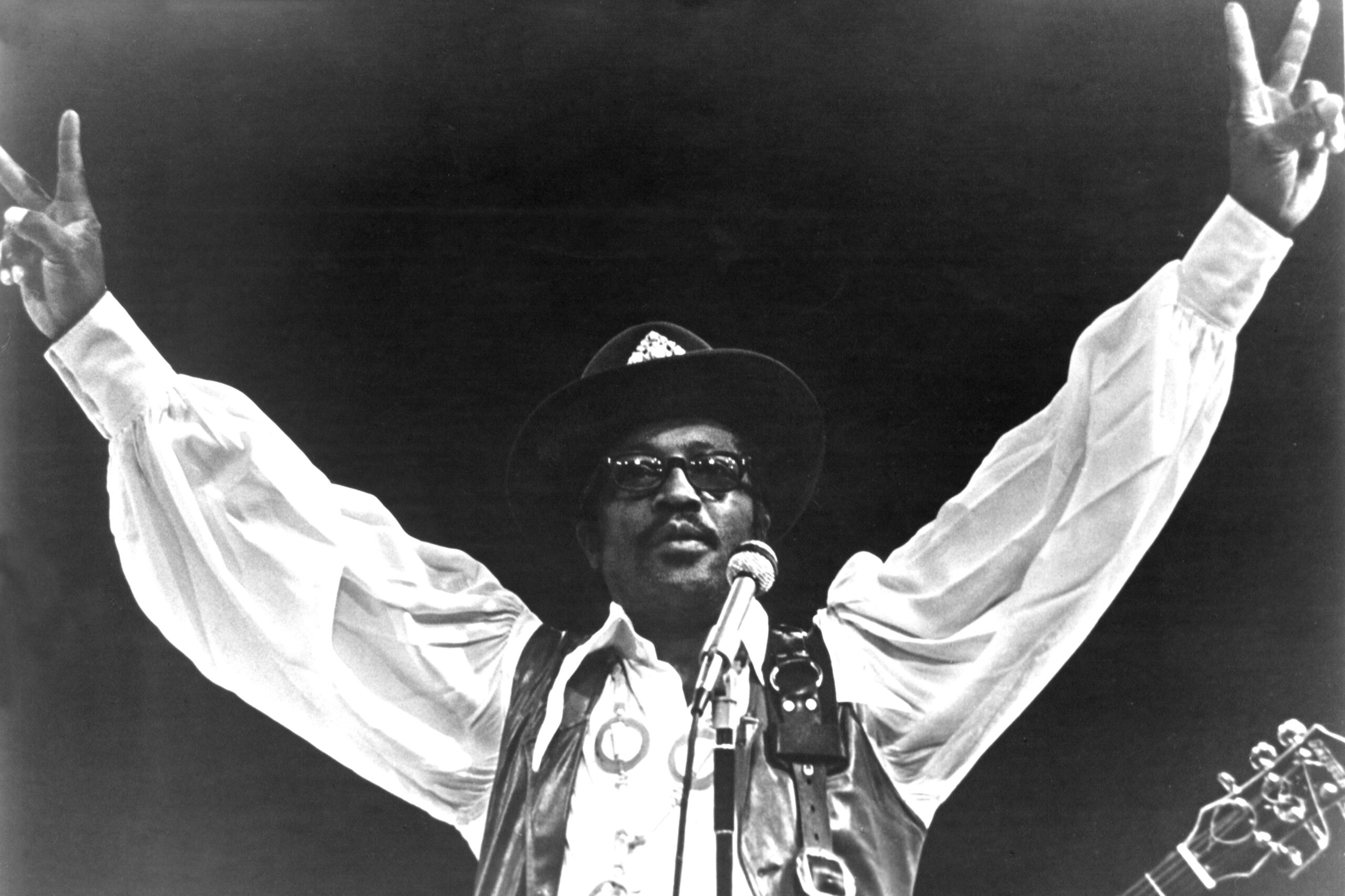
Bo Diddley didn’t just play the guitar—he redefined what it could do. His signature “Bo Diddley beat,” a syncopated rhythm that pulsed like a heartbeat, became one of the most imitated sounds in rock history. Songs like “Who Do You Love” and “Bo Diddley” were raw, infectious, and unlike anything else at the time. He built his own guitars, shaped like rectangles or triangles, and played them with a percussive, almost hypnotic style. His music had an urgency to it, making you want to move even if you didn’t know why.
Yet, for all his influence, Bo Diddley never quite got the recognition he deserved. He was overshadowed by artists who borrowed from his style but found greater mainstream success. Still, his fingerprints are all over rock, pop, and hip-hop. The Rolling Stones, The Clash, and even George Michael lifted his rhythm for their own hits. Without Bo Diddley, the entire structure of rock music would be different. He was a pioneer who understood that rhythm was just as important as melody—and that sometimes, it was everything.
9. Nina Simone – The Voice of the Revolution
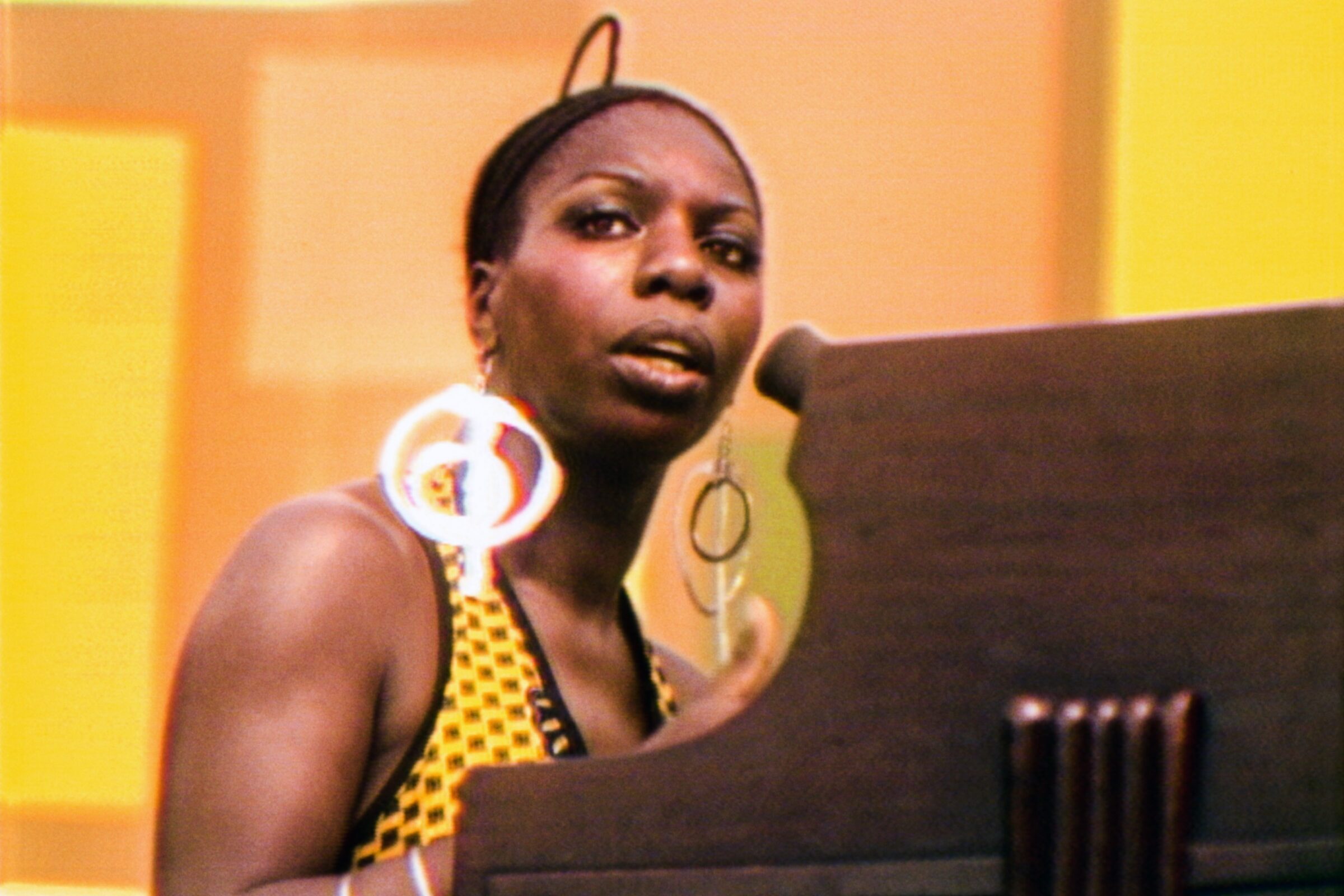
Nina Simone wasn’t just a musician—she was a force of nature. Her voice was deep, soulful, and filled with emotion, carrying the weight of every lyric she sang. She fused jazz, blues, classical, and folk into something uniquely her own. Songs like “Feeling Good” and “I Put a Spell on You” were mesmerizing, but it was her protest music that truly set her apart. “Mississippi Goddam” was a direct, unfiltered response to racial violence, and it made people uncomfortable—which was exactly the point.
Simone used her platform to demand justice, never backing down, even when it cost her career opportunities. She was fearless, uncompromising, and completely dedicated to her artistry. Her influence reached beyond music—her defiance inspired generations of activists, from Angela Davis to modern-day artists like Beyoncé. She proved that music could be a weapon, a balm, and a revolution all at once. Nina Simone didn’t just sing about change—she demanded it, and she made sure the world listened.
10. Fela Kuti – The Pioneer of Afrobeat

Fela Kuti wasn’t just a musician—he was a movement. The Nigerian multi-instrumentalist created Afrobeat, a genre that blended jazz, funk, highlife, and traditional African rhythms into a hypnotic, politically charged sound. His songs were long, often stretching past ten minutes, with complex layers of percussion, horns, and call-and-response vocals. Tracks like “Water No Get Enemy” and “Zombie” weren’t just music; they were rallying cries against government corruption and oppression.
But Fela didn’t just talk about revolution—he lived it. His outspoken nature made him a constant target of the Nigerian government, leading to arrests, beatings, and the destruction of his home. Yet, he never backed down. His music carried messages of resistance, unity, and African pride, influencing everyone from hip-hop producers to rock bands. Without Fela Kuti, the global music scene wouldn’t be nearly as rich. He proved that music could be both infectious and incendiary, capable of shaking both dance floors and political systems.
11. DJ Kool Herc – The Father of Hip-Hop
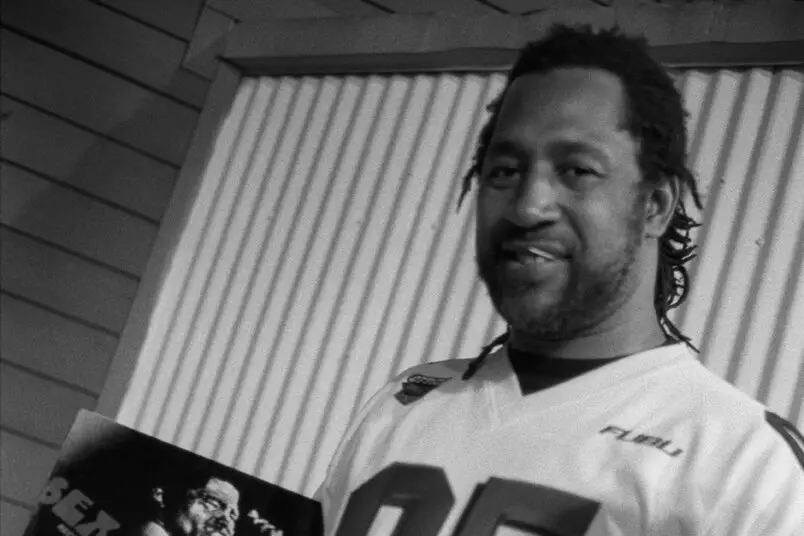
Before hip-hop took over the world, it started at a block party in the Bronx, thanks to DJ Kool Herc. In the early ‘70s, he figured out that the instrumental breaks in funk and soul records were the most danceable parts. So, he started looping them using two turntables, creating extended “breakbeats” that dancers—especially breakdancers—went wild for. His parties became legendary, and soon, his technique became the foundation of hip-hop.
Herc wasn’t a rapper, but without him, rap music as we know it wouldn’t exist. His innovations in DJing set the stage for scratching, sampling, and beat-making. Grandmaster Flash, Afrika Bambaataa, and every hip-hop DJ that followed built on his techniques. Though he never reached mainstream fame, his influence is everywhere, from rap battles to modern electronic music. He didn’t just start a genre—he created an entire culture that changed the world.
12. Prince – The Genre-Defying Genius
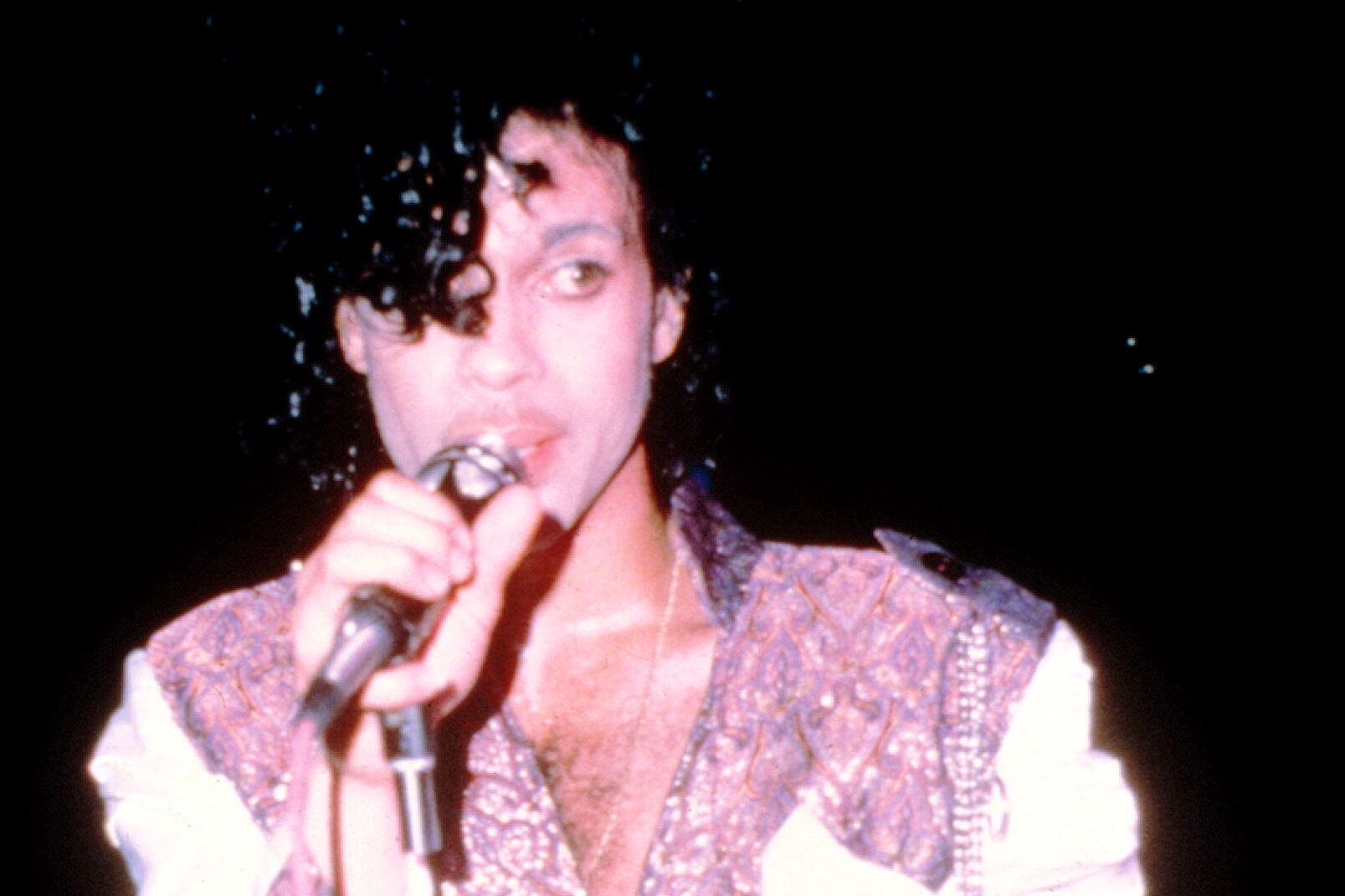
Prince refused to be put in a box. He wasn’t just a rock artist, a funk musician, or an R&B star—he was all of them, sometimes in the same song. His guitar solos rivaled the greatest rock legends, his grooves were as funky as James Brown’s, and his falsetto could melt steel. With albums like Purple Rain and 1999, he showed the world that music didn’t need limits. His songwriting was bold, his performances were electrifying, and his control over his artistry was unmatched.
Prince didn’t just push boundaries—he shattered them. He blurred the lines between gender, race, and genre, making music that felt completely untethered from expectation. He fought for artists’ rights, famously battling record labels to own his masters. His influence can be seen in everyone from Beyoncé to The Weeknd. Prince didn’t just make music—he created an entire world, and we’re all still living in it.
